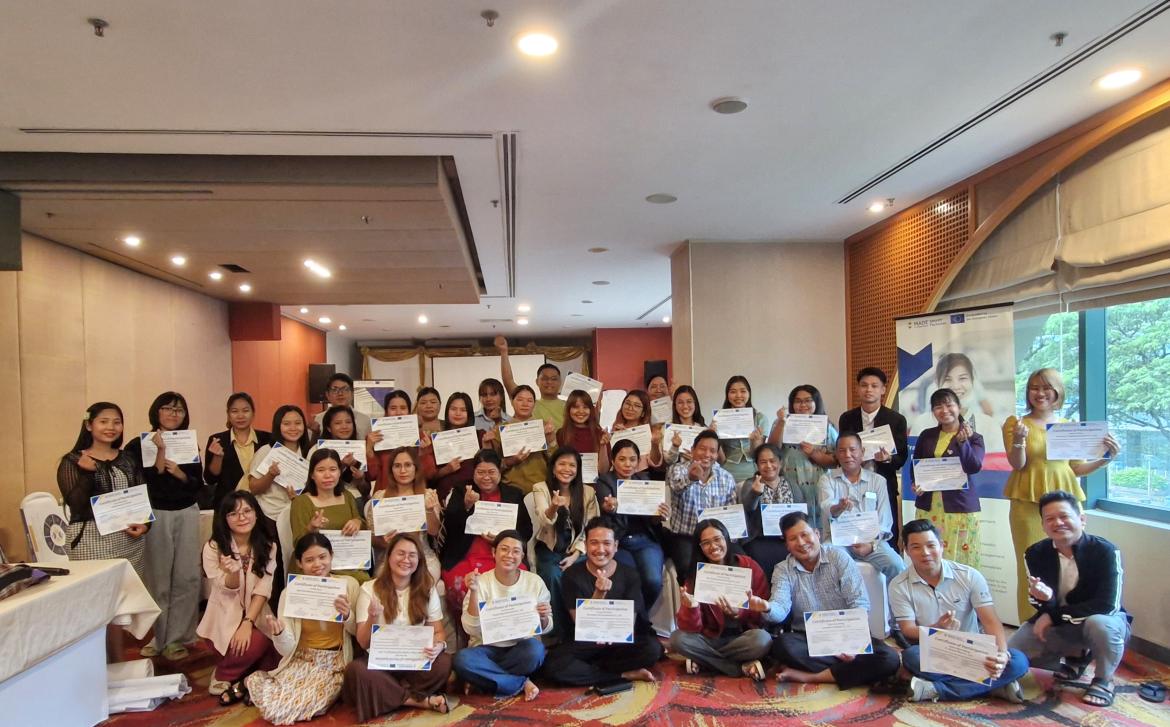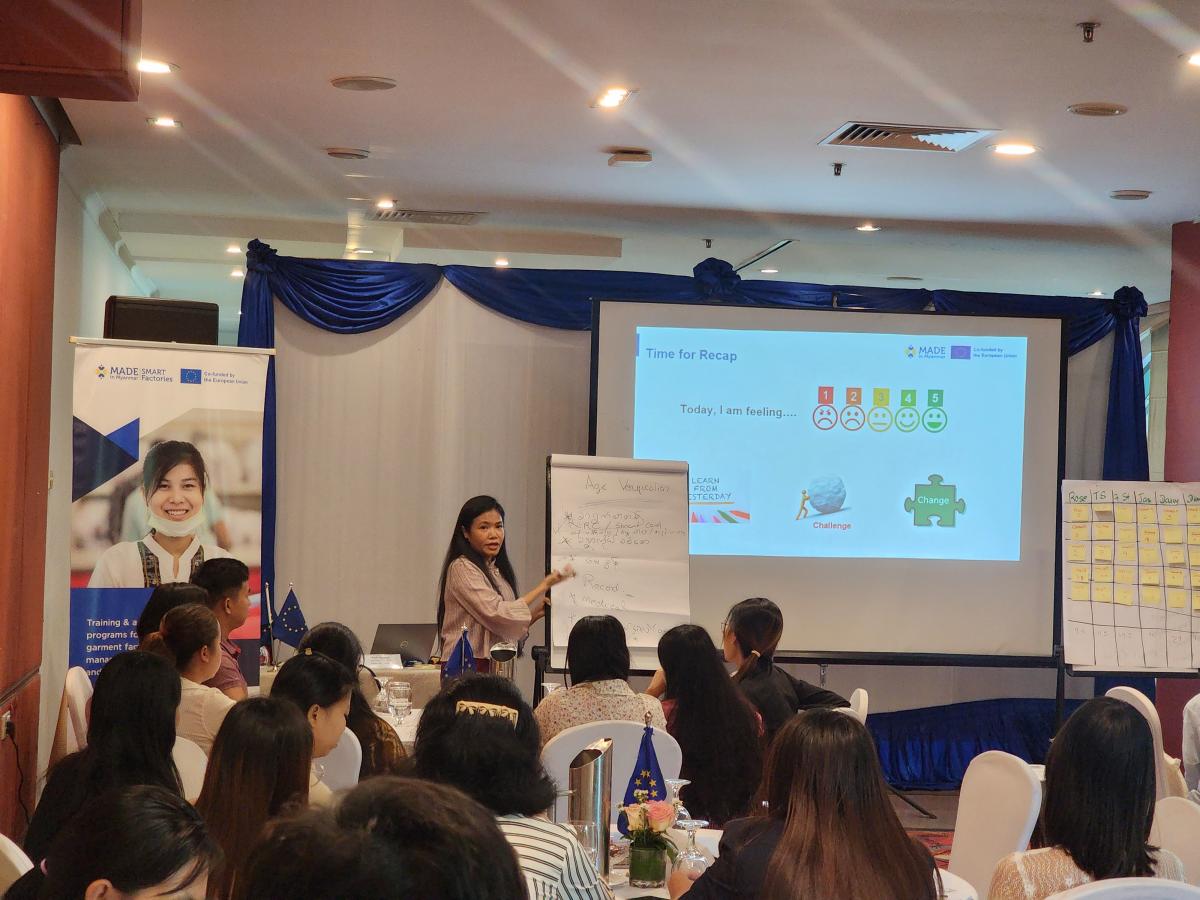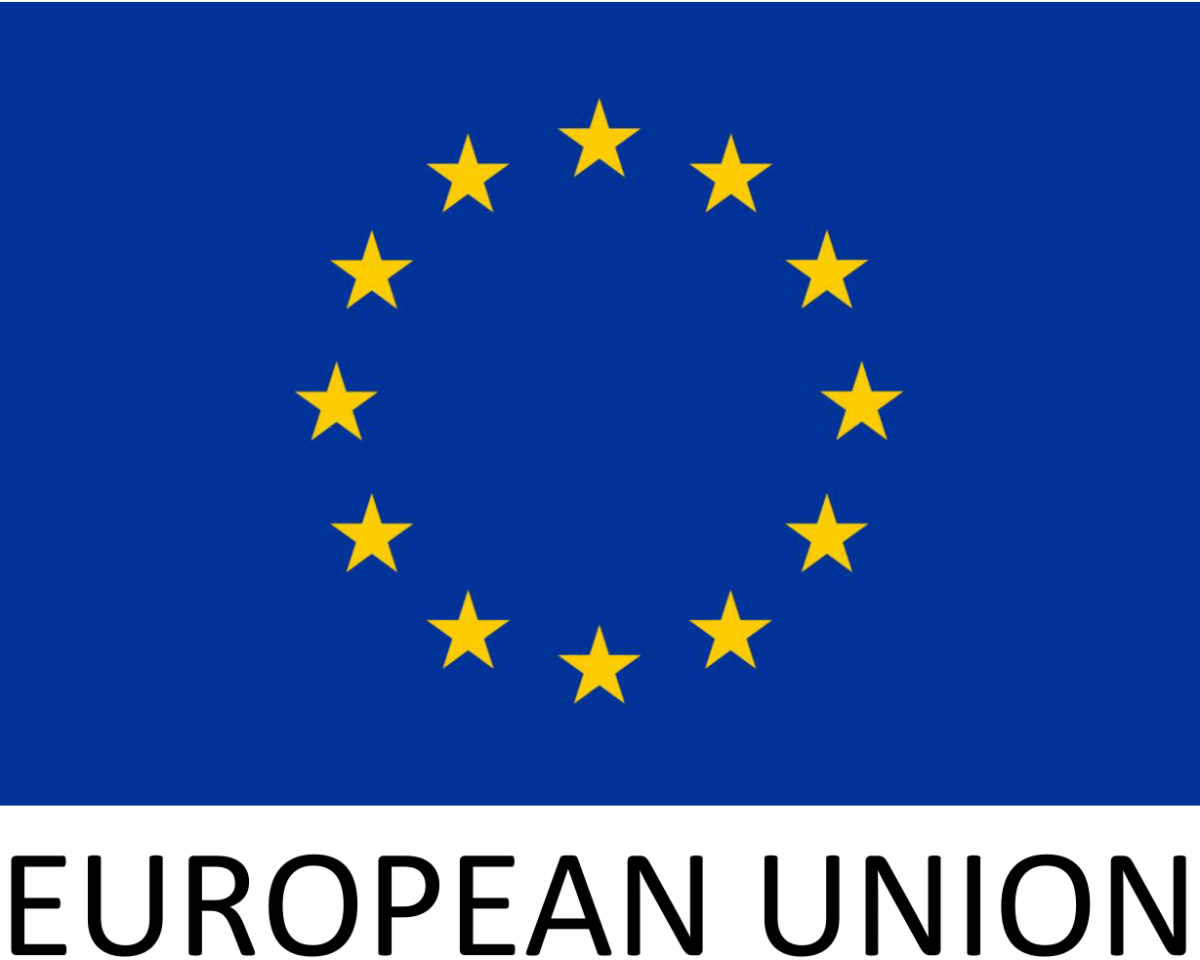
On July 24th and 25th the EU-funded MADE project conducted its 7th workshop on “Child Labour Prevention, Remediation and Young Worker Protection”, as part of the project’s ongoing efforts to promote decent work and ethical labour practices in the country’s manufacturing sector. Organised in partnership with technical experts from ProEthics Solutions, the session brought together 35 participants from the factories to strengthen their capacity in legal compliance, risk assessment, and responsible management of workers below the age of 18, in particular prevention and responsible remediation capacities for handling child labour and the protection of young workers.
This workshop introduces a module on hazardous work assessment, equipping participants with practical tools to identify dangerous tasks and design workplace-specific mitigation strategies. Through a combination of lectures, case studies, and group exercises, participants developed or refined factory policies related to age verification, child labour remediation, and workplace safety. One participant remarked, “The teacher’s instruction is very good. The (interactive) method is effective… it helps us remember things more clearly. The trainer is also very dedicated to the topic.” underscoring the value of the interactive, hands-on learning approach.
Since launching this particular workshop series in 2024, the MADE in Myanmar project has trained 243 unique participants with this module from 104 factories, with women representing 83.5% of all attendees. Beyond just training, the project has directly supported the remediation of child labour in 51 documented cases at 20 factories, between 2023 and 2025. These efforts have been carried out in collaboration with social partners and child rights organizations including ProEthics Solutions, The Centre for Child Rights and Business, and Future Light Center.
As with most MADE workshops, focus was given to facilitating peer learning, allowing factory representatives to share challenges and practical solutions in managing young workers safely and legally. Many participants expressed commitment to applying new tools and knowledge in their daily operations, particularly around risk identification and policy enforcement.
By investing in both prevention and remediation, the MADE in Myanmar project is helping to strengthen long-term protections for vulnerable youth in the garment and manufacturing industries. Future workshops will continue to deepen technical capacity and support factories in embedding responsible labour practices across their operations.

MADE is funded by the European Union and co-funded by 31 participating international retailers who collectively source products from approximately 165 factories, employing 205,000 workers.










